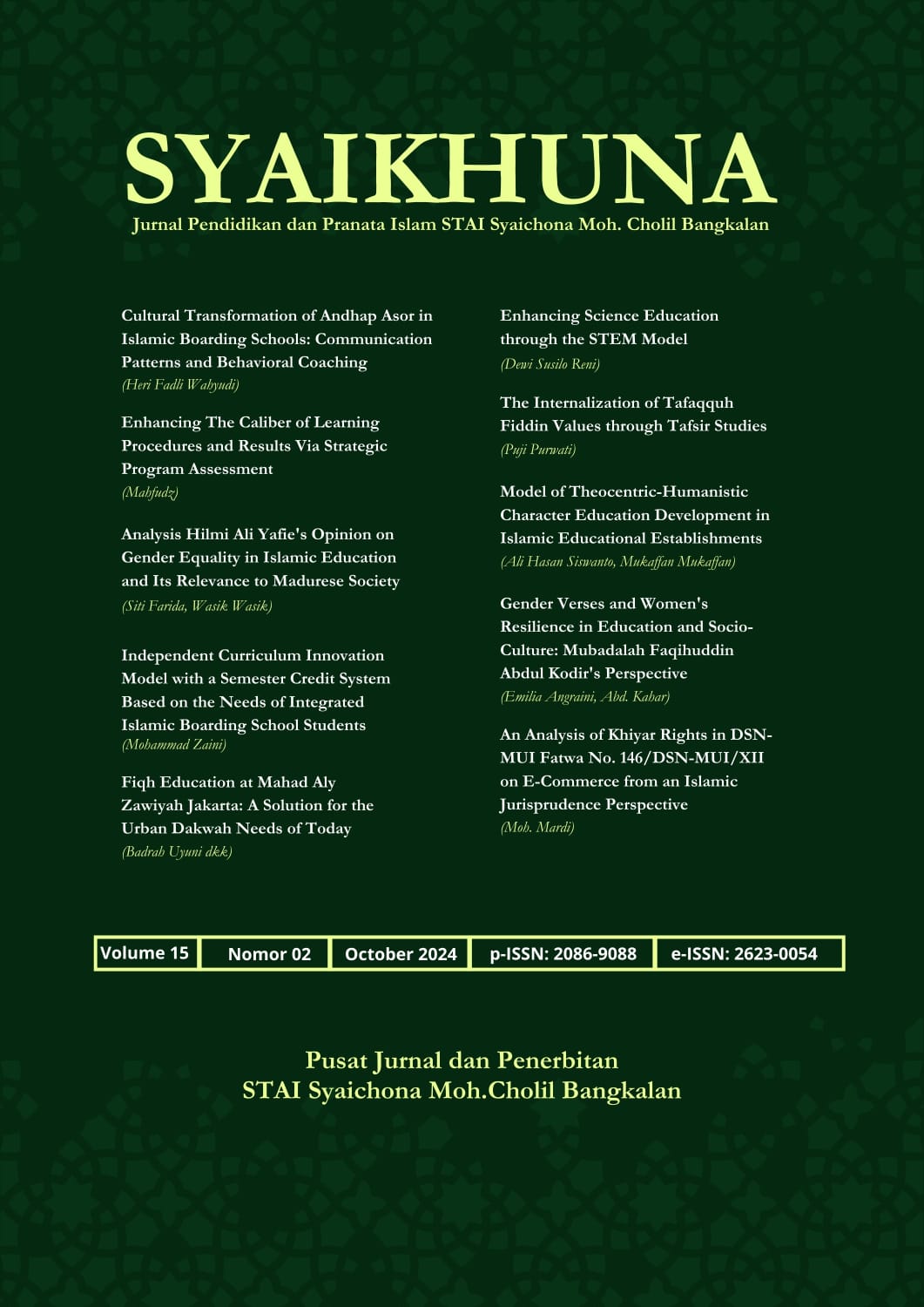Strengthening National Identity Through The Development Of Indonesian Language E-Modules In Academic Settings In The Society 5.0 Era
Keywords:
National Identity; Development of Indonesian Language E-Module; Society 5.0 Era.Abstract
Students face challenges in Indonesian language proficiency, especially those who are not native speakers or come from regions with dominant local languages, causing difficulties in understanding academic materials. This study aims to strengthen students' identity as Indonesians through the national language, with collaborative efforts from universities, lecturers, and students. Steps such as the development of an Indonesian Language E-Module, enhancement of language education, and balanced language use can support the sustainability and diversity of languages in the Era of Society 5.0. This research uses the R&D Development method to produce products and test their effectiveness, involving problem identification, planning, data collection, analysis, prototype development, and evaluation. The study focuses on active students at Universitas Nahdlatul Ulama Sunan Giri, with 20 randomly selected participants. Data were collected through questionnaires and an observation approach. Results show the strengthening of national identity among students, with scores ranging from 6.8 to 8.2. Students are active in nationalism, civic education, local research, campus organizations, and national discussions; however, participation in cultural arts and the preservation of local languages needs improvement. The use of social media to support national identity is also positive, though some areas still require enhancement. The Indonesian Language E-Module received an average score of 3.39, "Valid / No Revision Needed," excelling in writing skills and academic discussions despite spelling and grammatical errors. Revisions are recommended to ensure optimal benefits for users.References
Abdurachman, M. 2005. Ejaan Bahasa Indonesia Yang Disempurnakan. Jakarta: Pusat Pembinaan dan Pengembangan Bahasa, Departemen Pendidikan Nasional.
Ahmad Tanzeh & Suyitno. 2006. Dasar-Dasar Penelitian. Surabaya: Elkaf.
Akhtar, M., & Musarrat, R. 2021. “Development and Validation of an Instructional Module on Environmental Ethics for Secondary School Students.” Journal of Educational Sciences & Research 8 (1): 1–15.
Arifin, A. Z. 2009. The Sound System of Central Javanese: A Descriptive Phonology. Yogyakarta: Penerbit Kepel Press.
Arikunto. 2006. Prosedur Penelitian Suatu Pendekatan Praktek. Jakarta: PT. Rineka Cipta.
Crystal, David. 2019. The Cambridge Encyclopedia of Language (4th Edition). Cambridge: Cambridge University Press.
Darling-Hammond., Linda. 2010. The Flat World and Education: How America’s Commitment to Equity Will Determine Our Future". New York: . Teachers College Press.
Habullah. 2011. Dasar-Dasar Ilmu Pendidikan. Jakarta: Rajawali Pers.
Marzuki, A. 2021. “Kiat Sukses Mahasiswa: Strategi Belajar Efektif Dan Meningkatkan Prestasi.” Penerbit Grasindo.
Muhamad Rivai, & Sukaesih, I. 2020. “Analisis Data Kualitatif: Untuk Penelitian Kualitatif, Manajemen Dan Bisnis.” Bandung: CV Alfabeta.
Rizandi, M., &Aprisari, S. 2022. “Analisis Kesalahan Penggunaan Bahasa Dalam Forum Jual Beli Bangka Belitung Pada Media Sosial Facebook.” Jurnal Pendidikan Bahasa Dan Sastra Indonesia Undiksha.
Smith, Anthony D. 2020. “National Identity in a Globalizing World.” Edinburgh: Edinburgh University Press.
Sugiyono. 2019. Metode Penelitian Kuantitatif, Kualitatif Dan R&DMetode Penelitian Kuantitatif, Kualitatif Dan R&D. Edited by sutopo. 2nd ed. bandung: ALFABETA.
Wibowo, S. A. 2021. “Metode Penelitian: Teknik Penyusunan Instrumen Dan Pengumpulan Data.” Yogyakarta: Deepublish.
Downloads
Published
How to Cite
Issue
Section
License
Copyright (c) 2025 M. Iqbal Tawakkal, Festian Cindarbumi, festian.cindarbumi@unugiri.ac.id

This work is licensed under a Creative Commons Attribution 4.0 International License.





